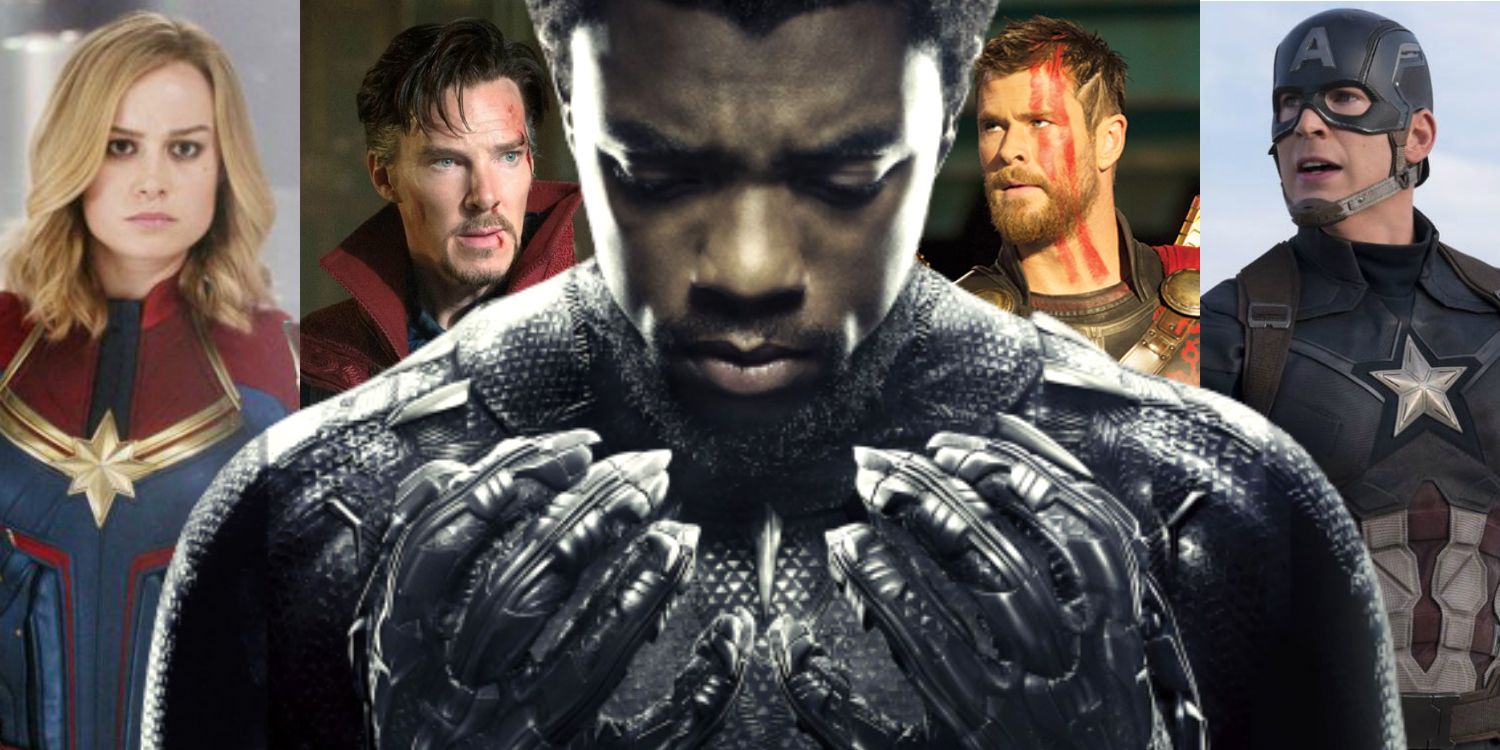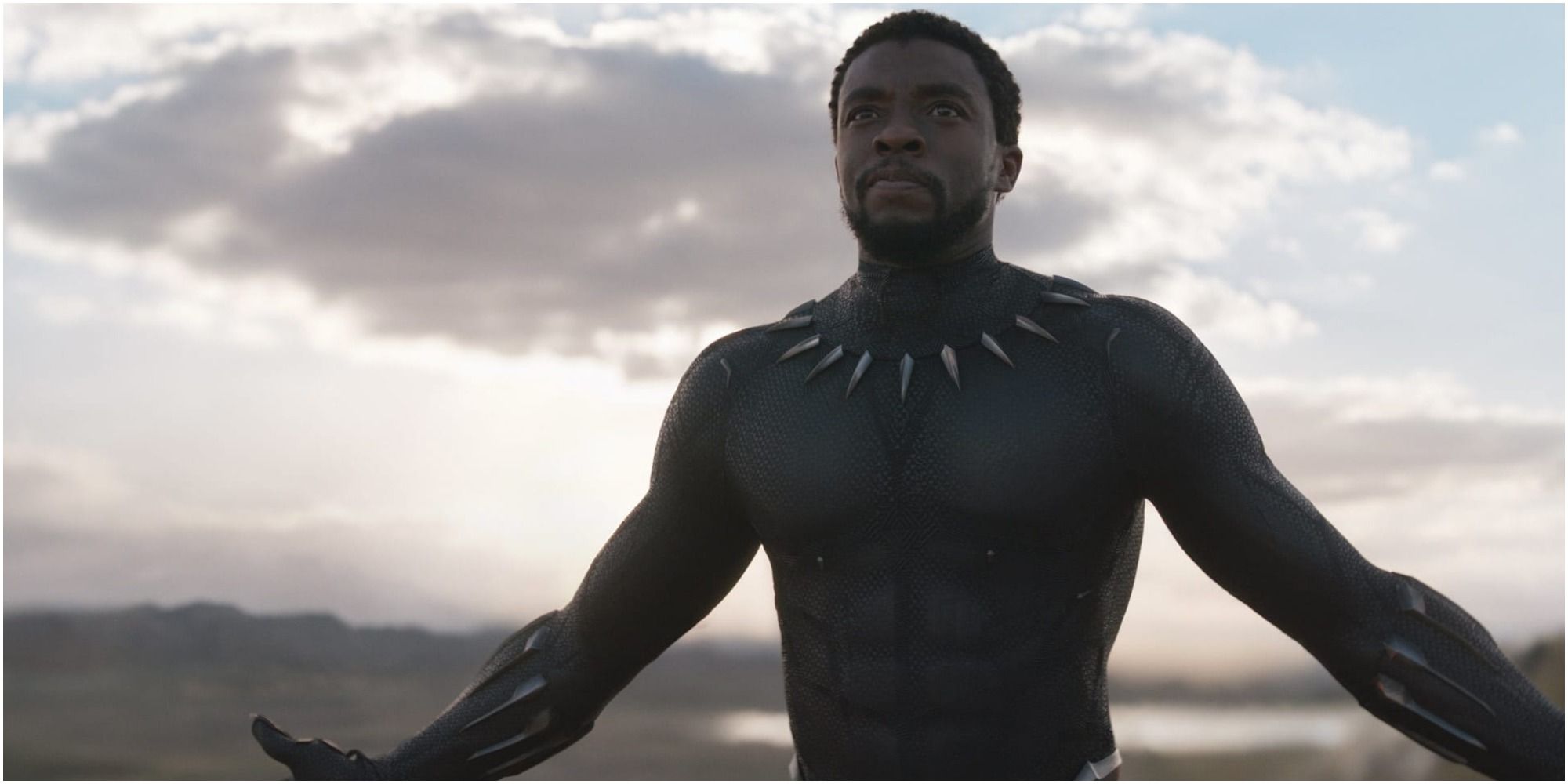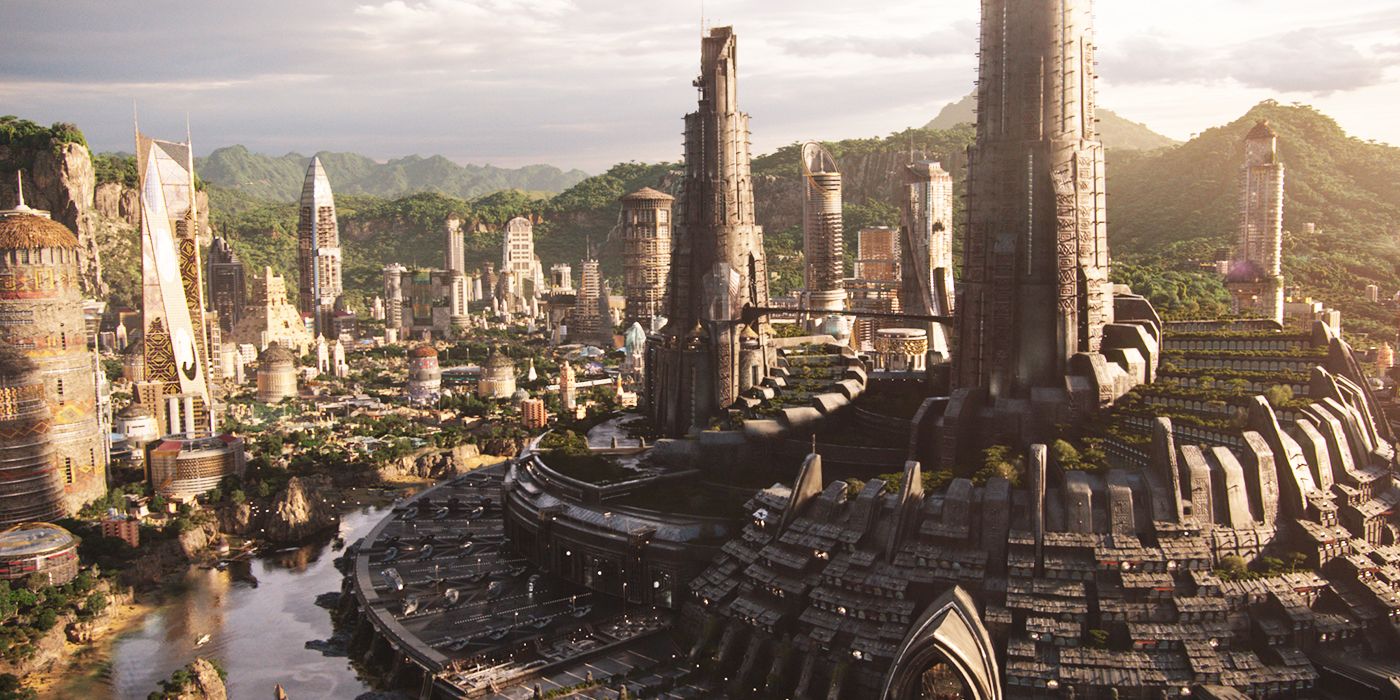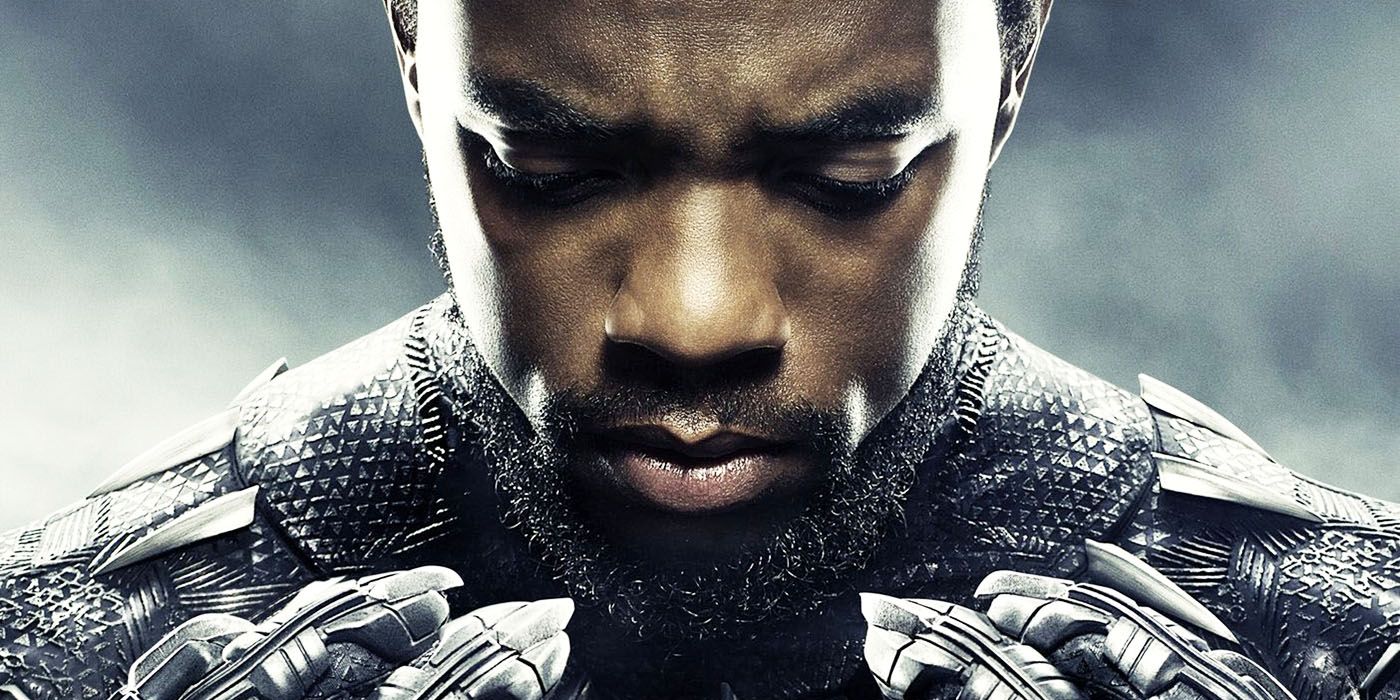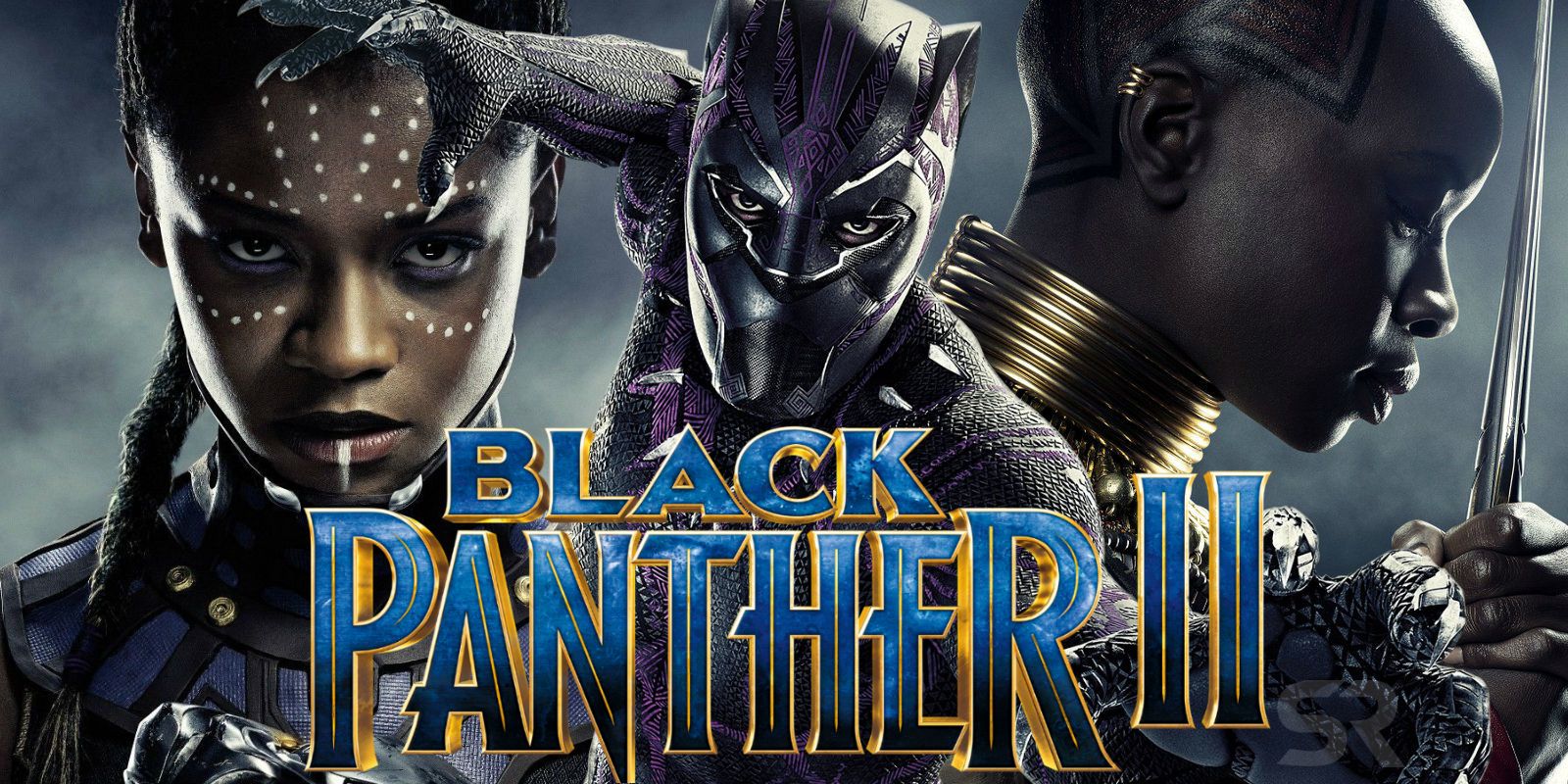A critical and commercial phenomenon, 2018's Black Panther was the most important film of Marvel's Phase 3. The character of Black Panther has had a long road to the silver screen, starting out as a passion project of actor Wesley Snipes back in the 1990s. Despite multiple directors expressing interest in the project (including the late John Singleton), the project stalled, and discussions weren't picked up again until around 2009 after the release of Iron Man.
The fictional African nation of Wakanda was first name-dropped in Avengers: Age of Ultron, an Easter egg which indicated to fans that the property was on the table. Like clockwork, the character made his first official on-screen debut in 2016's Captain America: Civil War, and quickly became a fan-favorite hero in the wider MCU. By the time his solo film rolled around in 2018, King T'Challa (Chadwick Boseman) was already a character in high demand.
To the surprise of no one and everyone at once, Black Panther's release was a massive success. It received widespread critical acclaim for the nuanced and socially relevant conflict, was a massive box office success, and even helped secure a Best Picture nomination for the MCU. Looking back after the conclusion of the MCU's first era, Black Panther is undoubtedly the most important film released in Phase 3.
Black Panther Was A Superhero Film For Everyone
While comic book movies have been dominating the film landscape for several years now, superhero adaptations aren't for everyone. A common criticism of Marvel movies in particular is that they're paint by numbers and cliched; outcomes are easy to predict and the traditional good vs evil narratives fail to add complexity to their characters. Lots of superhero films circumvent these problems and attempt new and exciting updates to the formula, but lots still fall short by the standards of some of the great movies we have today.
Black Panther is one of the exceptions; a movie that truly embodies everything about the superhero genre while pushing the boundaries of what it has to be. The movie is packed full of high-octane action sequences and Marvel Easter eggs, keeping fans and audiences enticed as to what Wakanda and T'Challa's role will be within the larger scope of the universe. But beyond that, there's so much more under the surface that will appeal to fans of well-written movies. The conflict between T'Challa and Killmonger (Michael B. Jordan) is almost operatic in its complexity; a rivalry that encompasses family, culture, and socioeconomic ideology. The attention to detail and art direction is rich and meticulous, in a way that's easy to admire. And there's an honest intention behind the film, an inclusive message that transcends the confines of superhero movies and is universal in its relevance.
Black Panther Had Proper Representation That Mattered
Despite the MCU's near-stranglehold on the superhero film market, since its beginning, conversations have been had about the diversity of the roster. Back in 2016 when Black Panther appeared in Civil War, the MCU hadn't even had a person of color lead a solo film, much less an entire cast of Black actors. They were on the cusp of breaking new ground, a transition that was fought for tooth and nail by Feige behind the scenes.
When Black Panther finally did land on the scene, it didn't just bring audiences a solo film helmed by Black stars; it brought the continent of Africa in all its glory. When Wesley Snipes was still attached to the project in the 90s, one of the big draws of the property to him was the ability to show Africa outside of the racist and xenophobic confines that it had been portrayed as in previous movies and shows. A full 26 years from when it was originally pitched, Ryan Coogler finally did with Black Panther what it was always meant to do. Instead of leaning too far into the Afro-futurist aesthetic, Coogler found a perfect combination of imagination and authenticity: Black Panther's costumes and tribal rituals were lifted straight from real cultures in Africa, such as the aesthetics of the Maasai, Zulu, and Suri tribes, among others.
The Wakandan language was based on the very real Xhosa language, which each Wakandan actor had to learn in the film. The lens through which Wakanda is seen as a nation relatively untouched by British colonization is based in part on the South African country of Lesotho; a region that was able to stave off the worst effects of imperialism due to its terrain and location. Even things such as Killmonger's scars were based on the actual African process of scarification, practiced in places such as Ethiopia and beyond. The entire production team behind the film went above and beyond to marry the futurist vision of the comics with the atmosphere and culture of Africa, and it contributed to the event-like status of the movie.
Black Panther Was The Most Successful Solo Movie
Strategically positioned right before Avengers: Infinity War, Black Panther had the distinction of being the final solo film before the long-awaited two-part conclusion of the Infinity Saga. Because of this, it was arguably the most hyped and most talked-about leading up to it. While Captain America: Civil War was both acclaimed and financially successful, a lot of its impact is owed to the fact that it was essentially an Avengers film, with most of the characters from the team-up properties appearing in it. The discussion wasn't so much around the film itself, but how its repercussions would be felt moving forward in the MCU.
The hype around Black Panther was wildly different. Even before it was released, people understood that it was going to be an event: while Black-led superhero movies existed before 2018, none had ever truly had the magnitude or impact of representation that Black Panther did. And once the movie finally released, everyone saw just how financially viable the character truly was. Worldwide, the film grossed over $1.3 billion at the box office, making it not only the third highest-grossing film in the MCU, but the third-highest grossing superhero film of all time, right behind Avengers: Endgame and Avengers: Infinity War.
Black Panther 2 Should Introduce MCU’s Storm (Before X-Men)
How Black Panther 2 Can Be Just As Important In Phase 4
With the extreme success of the first film, a frequent and justified concern is whether or not the sequel will be able to recapture the same magic that drove the first one. With Ryan Coogler on board for Black Panther 2, it's a given that the vision will be consistent, and knowing Coogler's track record, there's no reason to doubt that there won't be the same attention to detail and love for the source material. However, there is the possibility that something could be missing that might cause the inevitable sequel to falter.
In order to ensure that Black Panther 2 is as important than the first one, they need to concentrate on what allowed it to stand out from other films in Phase 3. Specifically, the movie's sequel needs to double down on the social relevance and nuance that the first one captured so well. With T'Challa officially opening Wakanda up to the rest of the world, there's a golden opportunity to tell a story that reckons with the effects of international policy as well as the views the rest of the world might have on Wakanda. Not only does this position Coogler and co. to be able to tell an engaging and relevant story, but it also ensures that Black Panther 2 will lay the groundwork for the status quo of the MCU moving forward.

